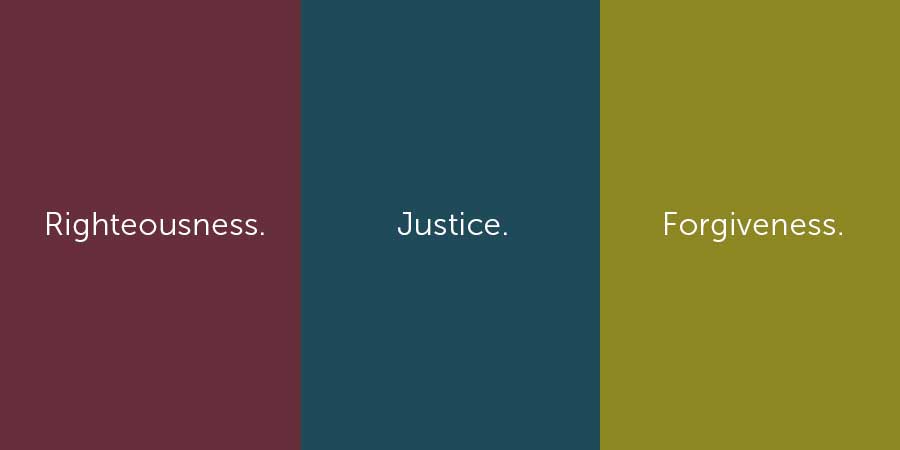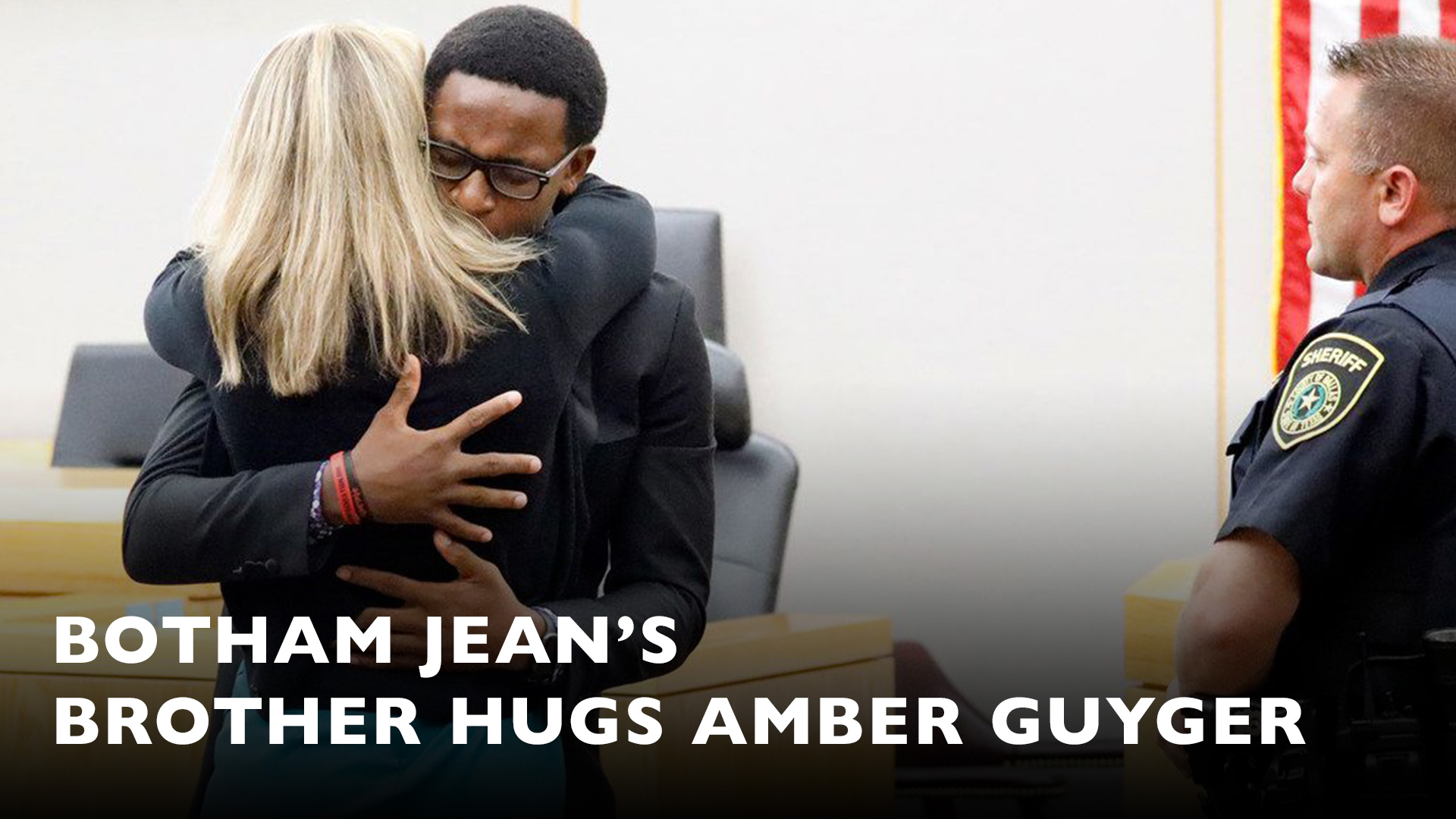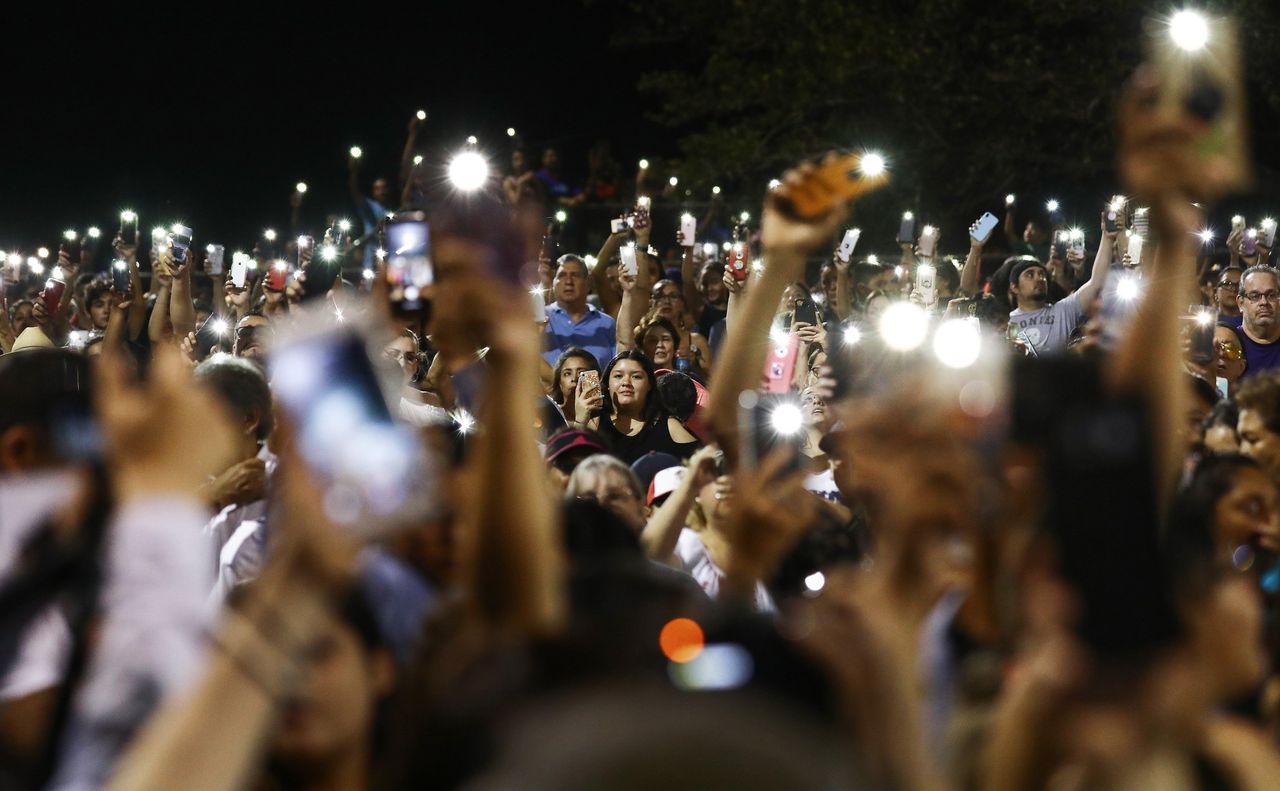By Pastor Brady Wolcott

Righteousness
God is righteous. His standard is righteousness. It is this standard that God holds his creation to. Righteousness is not only moral goodness, but also love toward God and our neighbor. It is obeying God’s law, but it is also a way of life. Righteousness is rooted in the Image of God. It is putting others above yourself.
Justice
When righteousness is not upheld or is violated, justice restores individuals and the community to righteousness. If righteousness is the establishing of what is right, then justice is the restoration of what is right. Justice seeks to restore both the victim and the victimizer. When we do harm to each other as humans, our humanity is violated, the image of God is violated. Justice seeks to restore the image of God.
Forgiveness
Forgiveness is the pardoning of an offense. But forgiveness never negates the offense or its effects. When we forgive someone, the hurt and damage of the offense still exist (think, for example, of the wounds that Jesus still has). When I forgive, I am choosing to absorb those wounds, hurts, and damages. Forgiveness also allows the restoration of the image of God in my own life, because God is a forgiver, therefore to forgive truly is divine.
Forgiveness and Justice
But forgiveness must always be coupled with justice. Now, remember justice is about restoration, not retribution or vengeance. If all we do as Christians is forgive, without seeking restoration of the image of God in the offender and the offended, then we have not practiced Christian justice.
Sometimes by simply forgiving a person, they will be restored. Often there is not anything a person can do to physically restore what they have taken from another person. But in seeking forgiveness we acknowledge the inhumanity of our actions against another, and in so doing we restore our humanity and our victims. In offering forgiveness, we too restore our own humanity and our victimizer’s humanity. We are saying that they are an image bearer who deserves dignity.
Forgiveness without Justice belittles Righteousness
To teach and practice forgiveness without a desire for justice (restoration) is to belittle God’s righteous standard. It is almost to say “there is not a standard.” If we forgive without desiring change or restoration, then we have mocked God’s holiness and possibly even hurt the person we have forgiven. As Christians we need to be people of forgiveness, but also people of justice. We must recognize that to forgive without justice has no meaning (righteousness is meaning). Forgiveness without justice is easier, and less painful, but is it even truly forgiveness, or just an escape from pain? Forgiveness without justice ignores God’s character. Forgiveness without justice is just sentimentality.
The Gospel’s Justice Empowers Our Forgiveness
God has forgiven us, and this is an amazing reality. But God also seeks justice in our lives. By his gospel, he not only forgives us, he restores us to righteousness. He changes us. He sanctifies us. He makes us the new creation. This is his justice. Without it, our forgiveness would be meaningless. We would not be able to live with God forever apart from his restorative justice.
In this life justice is often a million miles away. We forgive and seek restoration but it may or may not happen. Human to human restoration is a two-way street. Justice is elusive. Victims are left without dignity, and victimizer are left without rehabilitation.
If this is true, if there is such a failure of justice in our world, and if forgiveness without justice is a failure in righteousness, then how can we ever forgive? Should we forgive? The answer is of course the cross of Christ. In his justifying death, Jesus made possible the restoration of all mankind. Every victim will be restored and every victimizer will either be restored or removed from his and his community’s presence.
Because we trust in the ultimate justice of Jesus, we can freely forgive and be forgiven. He will judge. He will make everything righteous. Because of this, we can seek restoration boldly and humbly. We can trust the grace of God but also the justice of God to make all things right. And now my free forgiveness is no longer foolish, harmful, or a violation of righteousness. It IS righteousness. It is loving God and loving others without violating God’s truth and holiness.








